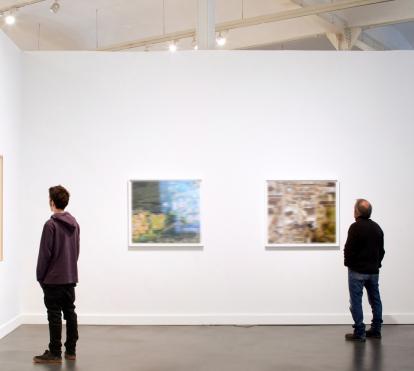
Before the Flood. Mesopotamia, 3500-2100 BC. CaixaForum Madrid
26.03.13
2 minutes read2500 years would pass before the first dolmens and menhirs were raised in Europe and Egypt was not yet a unified state governed by a pharaoh. But in what is now southern Iraq, a village became a great city of 40,000 inhabitants. It may well have been the first in history. The first monumental architecture, the first territorial planning, the first writing, the first accountancy: they all originated in Uruk, around 3500 BC.
The exhibition presented by ”la Caixa” Welfare Projects at CaixaForum Madrid, Before the Flood. Mesopotamia, 3500-2100 BC, brings together a unique group of 400 pieces from thirty-two museums and collectors all over the world, related to different aspects of the culture that developed on the flood plains of the Tigris and the Euphrates in the 4th and 3rd millennia before Christ. Through works of art and craft, jewels and ritual objects, texts and symbols, it presents the latest investigations into this period and speculates on the ways it has been interpreted by historians and archaeologists at different times.
The exhibition, curated by Pedro Azara with the participation of an international scientific committee, is complemented with documents, filmed interviews and reconstructions in 3D, as well as works by contemporary artists, photographs and films which bear witness to the fascination of a journey to the wellsprings of culture, or what remains of it.
Before the Flood. Mesopotamia, 3500-2100 BC can be on view at CaixaForum Madrid from 27 March to 30 June 2013. More information in the PDF press release